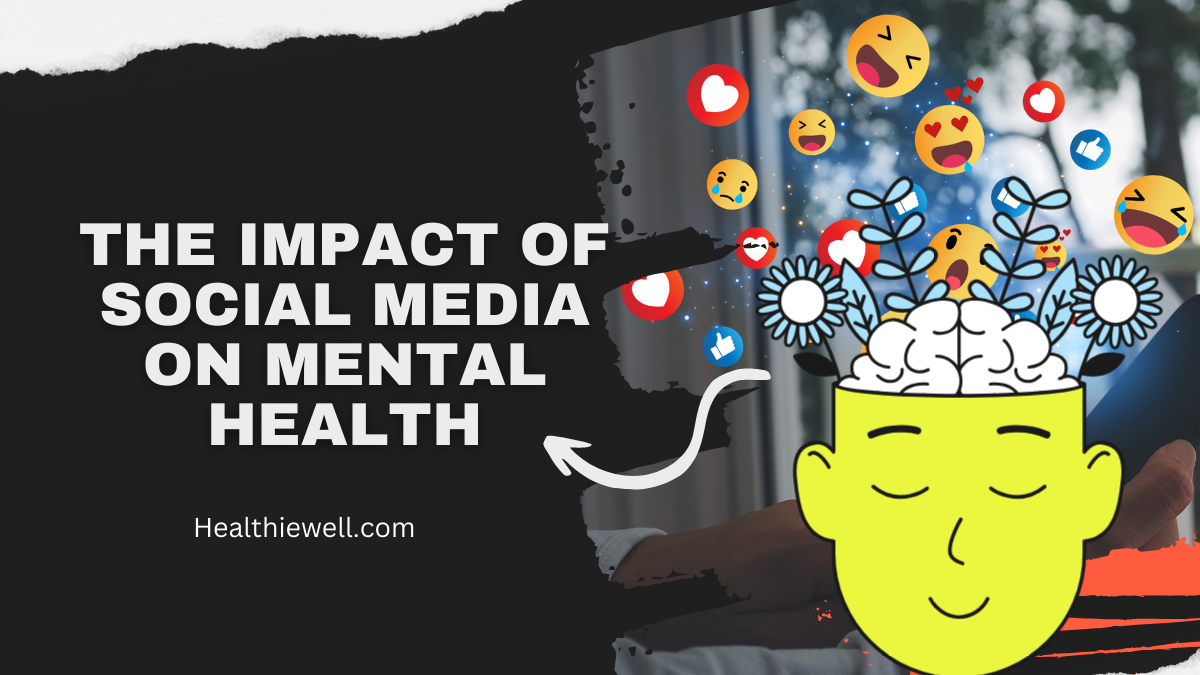In today’s hyper-connected world, social media plays a pivotal role in our daily routines. From staying in touch with friends and family to staying abreast of the latest trends and news, social media platforms offer various benefits. However, the impact of social media on mental health has become a topic of growing concern. Understanding this impact is crucial for cultivating a healthier relationship with these digital platforms.
The Dual Nature of Social Media
Social media wields a double-edged sword when it comes to mental health. On the positive side, it fosters social connectivity, particularly for those who might otherwise feel isolated. It serves as a platform for self-expression and community building, allowing users to share their stories and find support among like-minded individuals.
However, the darker side of social media’s impact on mental health cannot be overlooked. Excessive use of social media has been linked to increased anxiety, depression, and feelings of loneliness. The perpetual comparison with others, exposure to cyberbullying, and the pressure to maintain an idealized online persona can take a significant toll on mental well-being.
Anxiety and Depression
One of the most alarming aspects of social media use is its association with anxiety and depression. The curated content often showcases an idealized version of life, prompting users to compare themselves with others. This comparison can lead to feelings of inadequacy and low self-esteem. Additionally, the fear of missing out (FOMO) exacerbates anxiety, as individuals feel compelled to stay constantly updated with social happenings.
Cyberbullying
Cyberbullying is another critical issue intensified by social media. Unlike traditional bullying, cyberbullying can occur around the clock and reach a wide audience. Victims of cyberbullying often experience severe emotional distress, leading to heightened levels of anxiety, depression, and in extreme cases, suicidal thoughts.
Sleep Disruption
The impact of social media on mental health also extends to sleep patterns. The blue light emitted by screens can disrupt the production of melatonin, the hormone responsible for regulating sleep. Moreover, the habit of checking social media before bed can lead to increased mental stimulation, making it harder to fall asleep and resulting in poor sleep quality.
Strategies to Mitigate Negative Effects
Despite these negative impacts, there are several strategies individuals can adopt to cultivate a healthier relationship with social media:
1. Set Boundaries: Limit the time spent on social media each day. Utilize tools and apps that track usage and set daily limits to avoid excessive use.
2. Curate Your Feed: Follow accounts that promote positivity and unfollow or mute accounts that trigger negative emotions. Surrounding yourself with uplifting content can improve your overall mood.
3. Practice Mindfulness: Be mindful of how you feel while using social media. If you notice feelings of anxiety or depression, take a break and engage in offline activities that bring you joy and relaxation.
4. Digital Detox: Regularly schedule periods of digital detox, where you completely disconnect from social media. This can help reset your mind and reduce dependency on digital platforms.
5. Seek Support: If social media is significantly affecting your mental health, seek support from friends, family, or a mental health professional. Talking about your experiences can provide relief and guidance on managing your social media use effectively.
Conclusion
The impact of social media on mental health is complex and multifaceted. While it offers numerous benefits in terms of connectivity and self-expression, it also poses significant risks to mental well-being. By being mindful of our social media use and adopting healthy habits, we can mitigate the negative effects and foster a more balanced digital life. Remember, it’s essential to prioritize your mental health and seek help if needed to ensure a healthy and fulfilling life both online and offline.

